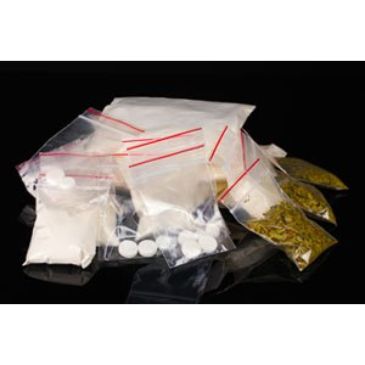This Is a Rhetorical Question, the Answer Is Yes!
Drug possession is a serious crime according to Tennessee laws, and anyone facing drug charges in Hamilton County should consider enlisting the help of an experienced Chattanooga criminal defense attorney.
The possession of a small number of drugs for personal use may not seem like such a huge deal. But, this molehill can become a mountain when the police find the drugs and formulate charges. Those found guilty of drug possession risk severe penalties, including years in jail and a criminal record influencing their ability to make a living and their image in their community for the rest of their life.
 In Tennessee, drug charges and corresponding penalties vary according to several factors:
In Tennessee, drug charges and corresponding penalties vary according to several factors:
- Drug schedule
- Quantity of drugs found in one’s possession
- Location of where person is found in possession (School Zone)
- The circumstances in which the offense took place
- Arrestee’s prior history of drug possession
It goes without saying that some drugs are more dangerous than others. In Tennessee, the law classifies them and punishes their possession according to the risks they pose to the user’s health and well being, their abuse potential, their therapeutic potential (if any), and their likelihood to induce addiction.
Drug Schedules Under Tennessee Drug Laws
- Schedule I – It includes the most dangerous drugs, the substances most likely to induce abuse, with no safe or acknowledged medical use, like opiates, heroin, peyote, LSD, and GHB.
- Schedule II – The substances in this category are also dangerous and likely to induce abuse, but milder than their predecessors, and may qualify for medicinal use. They are narcotics, like methadone, cocaine, amphetamines, and methamphetamines.
- Schedule III – Less dangerous than their predecessors and with a moderate abuse risk, the drugs in this category include some antidepressants, testosterone, anabolic steroids, and ketamine.
- Schedule IV – Most of the drugs in this category have clearance for medical use, even though they may induce addiction, especially when taken over long periods of time. The category includes alprazolam (Xanax), diazepam (Valium), clonazepam (Klonopin), and other sedatives.
- Schedule V – This category includes substances with low abuse and addiction risks, like Tylenol and Codeine.
- Schedule VI – Marijuana is in this category due to its lower risks of inducing addiction compared to other substances.
- Schedule VII – This last category includes butyl nitrate, the less harmful illegal drug, also named “poppers” or “locker room rush”.
When deciding what to charge an arrestee with, Chattanooga City and Hamilton County police officers usually take into account the drug schedule and the quantity. Depending on quantity, the charges can be of simple possession, casual exchange, or of possession with intent to sell. The amount is always going to be the paramount issue when an officer determines whether or not to charge an individual with a resale charge.
Simple Possession / Casual Exchange Drug Charges in Tennessee
This is the lowest offense in the state, involving small quantities of non-dangerous drugs. It qualifies as a misdemeanor of Class A for first-time offenders and may bring about penalties of up to 1 year of imprisonment, fines of up to $2,500, drug education classes, or community service.
Repeat offenders may face class E felony charges, meaning up to 6 years of imprisonment and fines of up to $3,000. With the help of an experienced Chattanooga criminal defense attorney, first-time offenders may be able to get the prosecution to drop charges, avoid criminal records, and take drug education classes and do community service instead of jail time.
Tennessee Drug Charges of Possession with Intent
The police usually formulate such charges when the quantity of drugs in one’s possession is higher than one may need for recreational use. Most of the times, they also have other evidence to prove one’s intent of selling drugs, such as scales, bags, and high, unjustified amounts of cash.
Drug possession with the intent to distribute qualifies as a felony in Tennessee and may bring about one or several of the following penalties:
- Loss of firearm and voting privileges
- Fines
- Exclusion from some employment categories,
- Probation
- Jail time
It is important to note that drug possession charges do not necessarily require that the police officers find the drugs in one’s hand or pocket. Drugs found in one’s home or car may justify the charges as well, despite the possibility of the defendant not being aware of their presence. One could simply be in the wrong place, at the wrong time, but the presence of drugs can ruin their entire life.
This is where the assistance of an experienced criminal defense attorney in Chattanooga can make a difference. Lawyers have their ways of gathering evidence, dismounting the evidence of the prosecution, finding witnesses, proving lack of intent, and convincing the court that the defendant deserves a second chance.
Consult with a Tennessee Criminal Defense Attorney Today
Are you or someone close to you facing drug charges in Hamilton County? Don’t let those charges turn into a conviction! Contact Best and Brock now, and let an experienced Chattanooga criminal defense attorney help reduce or eliminate your penalties and help you enjoy a fresh start!
